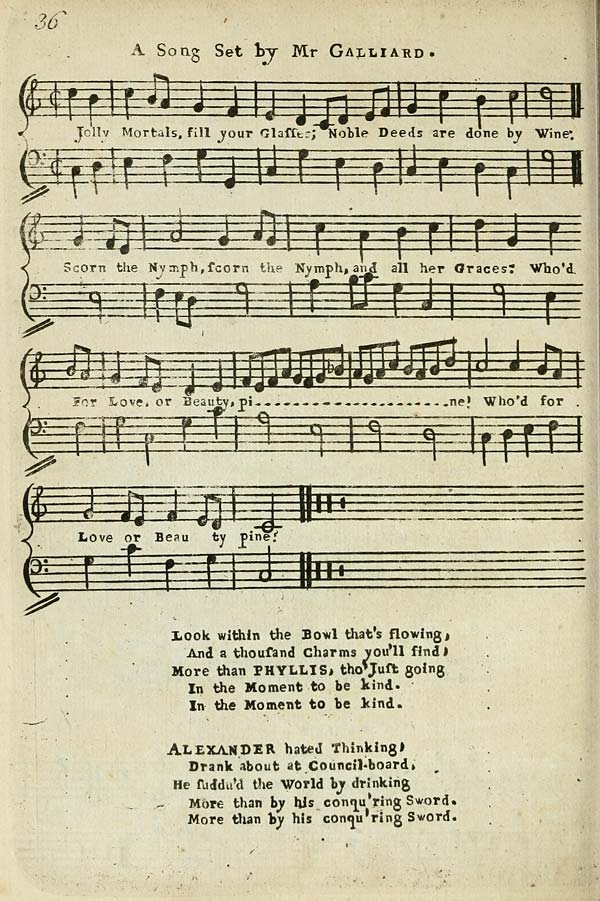“But now a crew for constitution”
As I wrote yesterday, Pennsylvania ratified the new U.S. Constitution in December 1787. But that didn‘t end debate in the state.
Many people were still wary of a stronger federal government, especially in counties to the west—not coincidentally, the areas where the Whiskey Rebellion would challenge President George Washington’s administration in 1791–94.
The town of Carlisle was divided on the issue while the surrounding rural areas of Cumberland County were largely against it.
On 26 December, Federalists in Carlisle celebrated the ratification. Anti-Federalists showed up and told them “their conduct was contrary to the minds of three-fourths of the inhabitants.” That argument blew up into a full-scale riot.
The next day, the two sides had separate rallies. The Federalists, now armed, finished toasting the Constitution. The Anti-Federalists paraded with effigies of jurists James Wilson and Thomas McKean, who had favored the document.
Many in town wanted that to be the end of the affair, but officials took depositions about the riot, and on 28 January issued warrants for the arrest of twenty-one Anti-Federalists. Seven of those men refused to post bail as a protest. Tensions grew.
On 3 Mar 1788, John Shippen wrote to his father from Carlisle about the next confrontation:
Many people were still wary of a stronger federal government, especially in counties to the west—not coincidentally, the areas where the Whiskey Rebellion would challenge President George Washington’s administration in 1791–94.
The town of Carlisle was divided on the issue while the surrounding rural areas of Cumberland County were largely against it.
On 26 December, Federalists in Carlisle celebrated the ratification. Anti-Federalists showed up and told them “their conduct was contrary to the minds of three-fourths of the inhabitants.” That argument blew up into a full-scale riot.
The next day, the two sides had separate rallies. The Federalists, now armed, finished toasting the Constitution. The Anti-Federalists paraded with effigies of jurists James Wilson and Thomas McKean, who had favored the document.
Many in town wanted that to be the end of the affair, but officials took depositions about the riot, and on 28 January issued warrants for the arrest of twenty-one Anti-Federalists. Seven of those men refused to post bail as a protest. Tensions grew.
On 3 Mar 1788, John Shippen wrote to his father from Carlisle about the next confrontation:
On Saturday, by daylight, a company from the lower settlement entered the town, singing “Federal Joy,” (a song composed by one of their party, and published in the newspapers,) took possession of the Court-house, and rung the bell all the morning. (I should have mentioned, they were armed.)Indeed, back on 23 January the Carlisle Gazette had published a four-column Anti-Federalist essay signed “The Scourge” which started with a verse from the Book of Judges and ended with a song titled “The FEDERAL JOY, to the tune of Alexander, hated thinking.” Using the melody of that drinking song, the poet parodied the Federalists’ attempted celebration the previous month.
Several other companies came in from different parts of the country, the last of which about ten o’clock. They then marched to the jail, and demanded the prisoners; upon which, they received them, placed them in their front, and marched through town huzzaing, singing, hallooing, firing, and the like. It is thought there was upwards of eight hundred. Such a number of dirty, rag-a-muffin-looking blackguards I never beheld.
AWAKE my muse in copious numbers,This Anti-Federalist author referred to his side as “a crew for constitution” and “whigs,” as opposed to the “federal” party that was trying to replace the American constitution with, well, the Constitution.
Sing the federal joy compleat,
The loud huzzas the cannon thunders
Announce their triumphs to be great.
Behold they march with curls flying,
Weary steps, and powdered heads,
Soften’d hands, with eyes espying
Crowds of whigs assembled.
But see they halt, & now are forming
Regular as veteran bands,
Breathing defiance, scoffing, scorning,
The low opposers of their plans.
But now a crew for constitution,
Harshly then began to treat them,
Despising federal institution,
Nor aw’d by powder or pomatum.
From words to blows, those vile aggressors,This song has little to say about policy but a lot about class and masculinity. And the Shippen letter from six weeks later shows that the Carlisle Anti-Federalists liked it.
Rudely drove our harmless band,
Despoil’d the work of their hair-dressers,
Daring assumed the chief command.
Now helter skelter in disorder,
Flew our heroes to their homes,
Happy their legs were in good order,
To save from geting broken bones.
Lawyers, doctors and store-keepers,
Forsook their general in his need.
And from their windows began peeping
Viewing their valliant hero bleed.
But like veterans in the morning,
Appear’d in arms bright array,
Revenge, Revenge, they cry’d when forming
We ne’er again will run away.
Full thirteen rounds for federal honor
Shall thunder loud, tho’ hell oppose;
Display our new terrific banner,
To intimidate our scurvy foes.
Undauntedly three rounds they fir’d,
When lo a drum, most dreadful sound
Awak’d new fears, courage retir’d,
Paleness in every face was found.
Again their shanks were put in motion,
With rapid strides they homewards stretches,
Or to avoid another portion,
Or s--t a second pair of breeches.
And now the pannic being over,
When not afraid of club or rope,
Descends to law for to recover
Money for to purchase soap.
But not a souse for all their swearing,
Tho’ shirt and breeches both were foul’d;
Liberties sons are presevering,
Nor will by fed’rals be controul’d.
And if those harpies seek preferment
Thro’ their countries streaming blood,
They’ll dig graves for their interment,
Or smother in the purple flood.


No comments:
Post a Comment